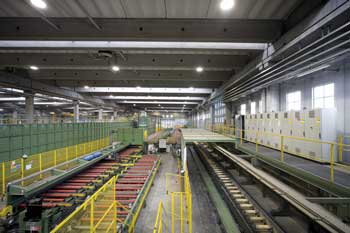Bodega Profiles for the Automotive Industry: an “Extrusive” Technology
Bodega invests in the production process and in quality control systems to increase its production of structural automotive components
by Alberto Pomari
For some time Bodega has been making strategic choices to differentiate the types and application sectors of its extruded aluminium productions, remarkably strengthening its presence on the automotive sector, with a wider range of medium-high mechanical strength alloys, from 6463 used for car trims and for the visible parts of the inside and outside, to the different versions of the classical 6060 alloy, from alloy 6005A to 6082, even these in different versions, used to create extruded components for vehicles, both structural and semi-structural.
Applications envisaged are numerous, such as, alloy profiles for structural Bodies in White, components for car trim in general, silent blocks for anti-vibration systems or components for brakes and for the mechanical parts of the car in general. These details require great care in the production and testing processes. The request for defect free products, with defective products close to zero PPM (parts per million) by the automotive industry, demands an accurate and continuous monitoring of the production process, which in the case of extruded goods begins with billets and suppliers of qualified and tested raw materials, including the extrusion dies, the most stressed points of whose profiles the construction project must take into account, especially in the case of porthole matrices for hollow profiles. The extrusion process must occur at constant and monitored temperature and speed; it must predetermine the portions of the bars which must be “scrapped”, that is, cut during extrusion and discarded, to eliminate completely any risk of “drilling” (initial parts of the bar which are not yet perfectly welded) or of initial parts of welding of the extrusions. It is always mandatory to avoid so-called “block to block” extrusions, that is, those where two half-billets are used in production, to eliminate the possible defects of materials within an extruded bar. It must be taken into account that even a simple supply of extruded bars may give rise to dozens of components after machining and each one of these must be guaranteed for successive assembly on the car.
Bodega is going through the IATF 16949:2016 certification process, the new international standard for the automotive sector which replaced the ISO/TS 16949:2009 certification, and which, even thanks to the recent acquisition of PFA plants which were already certified in this respect, will lead the group to match the highest normative level foreseen for supplies to this very important and strategic sector.

